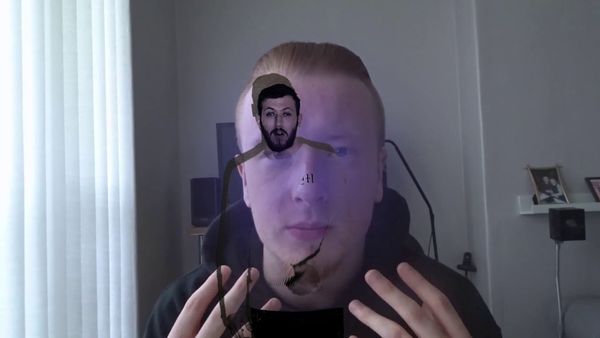Eye For Film >> Movies >> We Are All Here (2019) Film Review
We Are All Here
Reviewed by: Andrew Robertson

Split into three chapters, Hannah Currie's film draws from the Scottish hip hop community's reaction to the loss of one of its own. The young man whose absence is her subject is Calum, Mohsen, Lumo - more Barbour than b-boy, but clearly an able MC, inspiring loyalty, camaraderie, sympathy.
It ends with the number for the Samaritans (116 123 in the UK) and a reminder that suicide is the biggest killer of UK men under 50. That's bound up in masculinity, exacerbated by the projected selves of hip hop. Scottish rap might be more rose Echo Falls than Cristal, but it's got a more complicated relationship to bottle. There's a bravery here, in part because Hannah has access not only to Calum's family, to Lumos' crew, to Mohsen's friends, but to his own words - not just from his lyrics but a vlog none of the three worlds knew about. It's something powerful to hear his entreaty to talk to others - and all the sadder for context.
A sequence that shows him in rap battle with himself is given extra weight by hearing words off-stage. Lumanes ('Lumo') clearly meant the world to his crew Dead Soundz and this is a fitting portrait (including an actual one by graffiti artist ROGUE ONE) not only of a young man in unseen crisis but of the reaction to his passing. It's a film inflected by grief - of family, of friends - Calum's sister observes that she "lost a brother but gained three", and in a film that's itself a family effort (Currie's own brother edits) it's not only document but testament to the power of human relationships.
Given special mention by the jury for the Glasgow Short Film Festival's Scottish Film prize, they mentioned its emotional qualities and how the film serves the goal of those left behind to let the situation serve as an "impetus for change". Between interviews and archive footage and Lumo's/Mohsen's/Calum's own words there's a lot to draw from here - Touzie Tyke's animations of lyrics is one of several nice touches in a film that's all the more powerful for the emotions on display. There's an almost palpable grief, language that comes close to anger and is sweary enough to prevent anyone from questioning how authentically Glaswegian this is. "Why could he not call me?" is the most serious question the film asks, and one that, in its own way, it answers.
When GSFF audiences saw it as part of the Scottish Awards programme Hannah explained that a version of the story (provisionally titled Lumo: Too Young To Die) will be airing on BBC Scotland, and she's apparently also working on a film that'll be made as part of the Bridging The Gap scheme - for more reasons than that I was reminded of the 2009 documentary Under The Surface. While this film is (auto)biographical for Calum/Lumo/Mohsen it's also an indicator of a documentarian's talent - to find, elicit, and tell a story is no easy feat, and while it's about a hard subject to talk about it's one that's worth listening to.
Reviewed on: 18 Mar 2019















